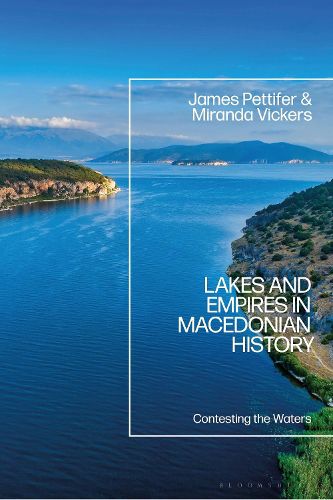Readings Newsletter
Become a Readings Member to make your shopping experience even easier.
Sign in or sign up for free!
You’re not far away from qualifying for FREE standard shipping within Australia
You’ve qualified for FREE standard shipping within Australia
The cart is loading…






Lakes and Empires in Macedonian History: Contesting the Waters tells the story of Psarades, a lakeside village in Macedonian Greece on the shores of the Prespa lake. This village, which is in many ways a completely typical Greek settlement and yet remains unconventional in its way of life, embodies the many contradictions of modern history and in exploring its roots James Pettifer and Miranda Vickers skilfully uncover the wider social, cultural and political history of this lake region.
Drawing from oral testimonies and attentive to the construction of national histories, this book considers how the development of international borders, movement of people and role of national identities within imperial borderlands shaped Macedonia today. What is more, by centering the lakes and making use of an innovative environmental historical methodology, Pettifer and Vickers offer the first environmental history of this multi-ethnic borderland region shared by Greece, North Macedonia and Albania. The result is a nuanced and sophisticated transnational account of Macedonia from prehistory to the 21st century which will be essential reading for all Balkan scholars.
$9.00 standard shipping within Australia
FREE standard shipping within Australia for orders over $100.00
Express & International shipping calculated at checkout
Lakes and Empires in Macedonian History: Contesting the Waters tells the story of Psarades, a lakeside village in Macedonian Greece on the shores of the Prespa lake. This village, which is in many ways a completely typical Greek settlement and yet remains unconventional in its way of life, embodies the many contradictions of modern history and in exploring its roots James Pettifer and Miranda Vickers skilfully uncover the wider social, cultural and political history of this lake region.
Drawing from oral testimonies and attentive to the construction of national histories, this book considers how the development of international borders, movement of people and role of national identities within imperial borderlands shaped Macedonia today. What is more, by centering the lakes and making use of an innovative environmental historical methodology, Pettifer and Vickers offer the first environmental history of this multi-ethnic borderland region shared by Greece, North Macedonia and Albania. The result is a nuanced and sophisticated transnational account of Macedonia from prehistory to the 21st century which will be essential reading for all Balkan scholars.